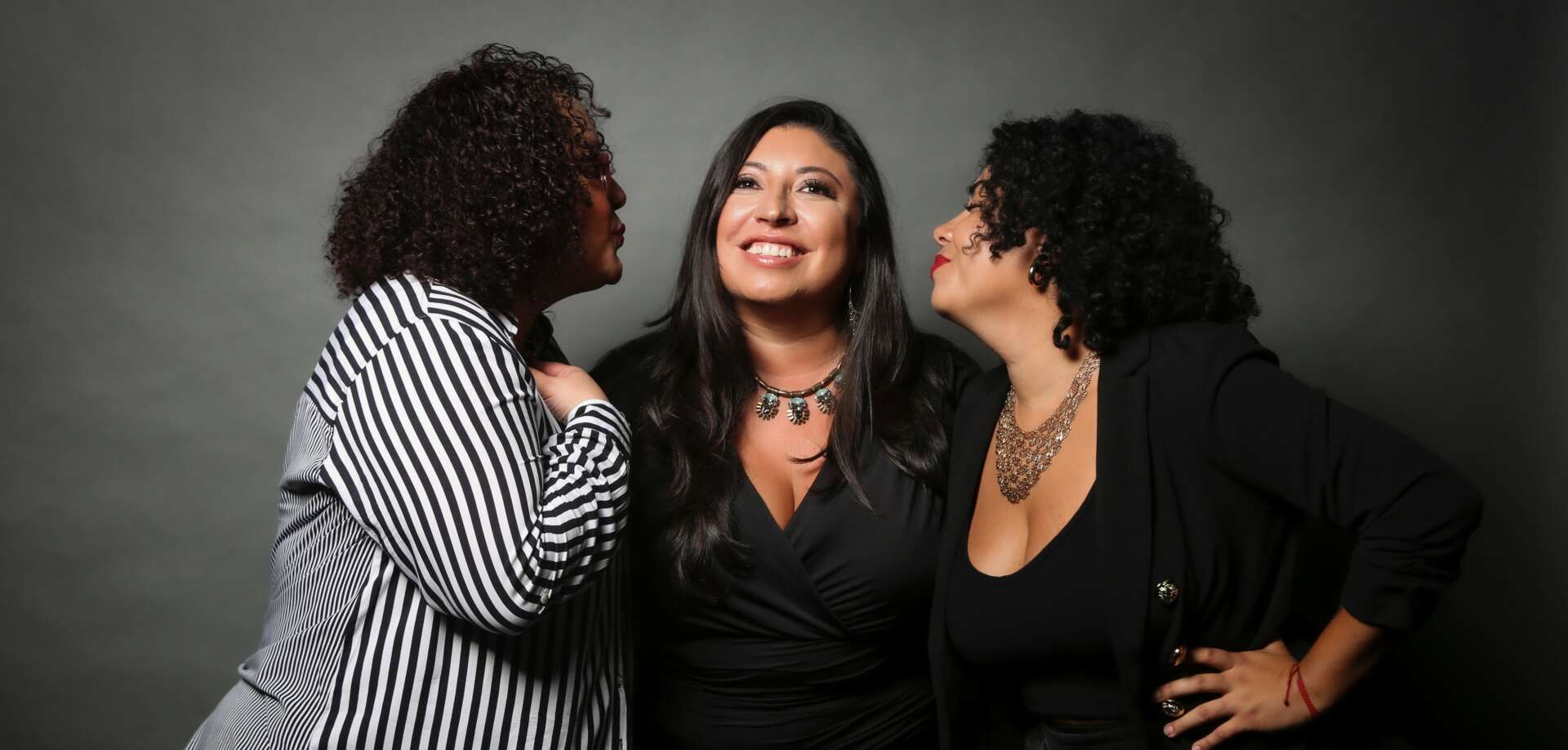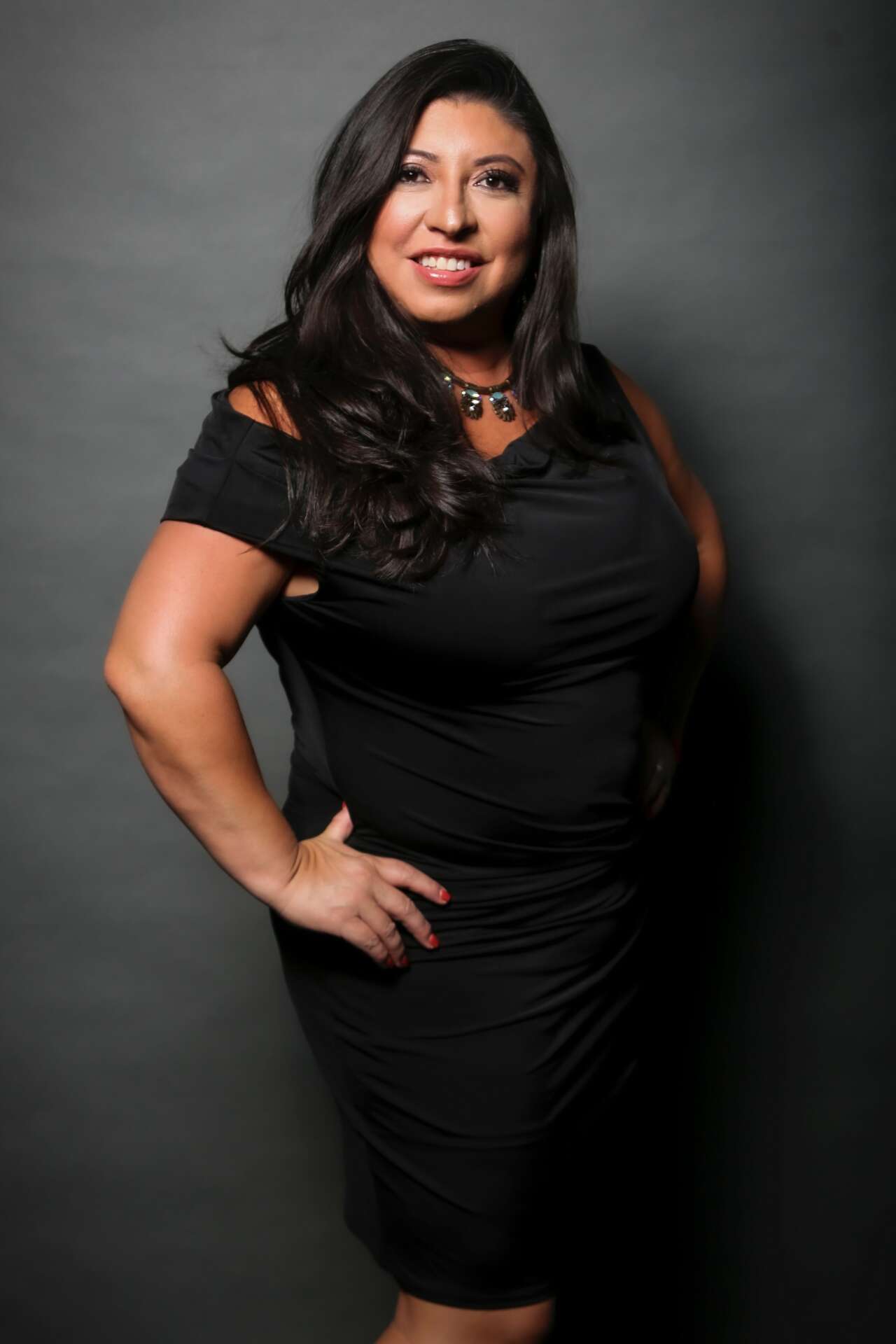We recently connected with Erica Priscilla Sandoval, LCSW and have shared our conversation below.
Hi Erica Priscilla, thanks for joining us today. So let’s jump to your mission – what’s the backstory behind how you developed the mission that drives your brand?
My mission is to empower 1,000,000 matriarchs to elevate their family system narratives. I provide tools, resources and knowledge to empower the next generation of narratives.
My story is rooted in my own matriarch and the matriarch I strive to become.
When I was young, my mom and I came to America from Ecuador and had a hard time finding stability. The daily trauma of being an immigrant with little support and trying to acculturate sometimes led my mom to physical violence. I was the one thing she could control in this world. But when I became a mother in my early twenties, I realized that I wanted to give my daughter a different life from what my mom was able to give me.
I went back to school, where I started to take classes about human emotions and behavior. I joined a support group for student mothers. I started going to therapy. I worked daily to untangle the roots of intergenerational trauma that had engulfed me for two decades. I strived to heal for me and my daughter, which led me to a career in social work.
I loved the work I did and the client base I built, mostly Latinx/e, immigrant, and women clients. But I didn’t love that the profession, especially the executive ranks, were dominated by white people. I didn’t love the constant microaggressions I faced. I didn’t love how so much of our training was through Eurocentric frameworks that discounted my ancestors’ ways of healing. With my handful of Latinx/e colleagues and other Latinx/e professionals I met through networking, I could finally take a breath, and we validated each other’s experiences.
It slowly occurred to me that these one-off conversations weren’t enough to heal the wounds Latinx/e social workers endure or change the field. That’s how Latinx/e in Social Work and Sandoval CoLab were born.


Awesome – so before we get into the rest of our questions, can you briefly introduce yourself to our readers.
To launch Latinx/e in Social Work, I organized a collective of two dozen Latinx/e social workers to tell their stories in an anthology published by the Latina-owned Fig Factor Media. These stories connect, inspire, and heal Latinx/e communities and communicate the urgent need for culturally humble social workers. And to make an even greater impact on the field, all proceeds are donated to the Latino Social Work Coalition and Scholarship Fund so that we can increase the number of Latinx/e social workers. We’ve now published two volumes of Latinx/e in Social Work and have held many author-led workshops about how social work can become more culturally competent.
Helping tell my community’s story inspired my other venture, Sandoval Psychotherapy Consultation LCSW, PLLC – also known as Sandoval CoLab. I lead an all-women, majority Latina, trauma-informed team in offering talk therapy, ketamine-assisted psychotherapy, and diversity, equity, and inclusion trainings to individuals, families, companies, nonprofits, and academic institutions.
Our therapy specialities range from mental health struggles, to life transitions, to identity-based challenges. Our ketamine-assisted sessions pair talk therapy with a healing psychedelic experience so that clients can immerse themselves and integrate their soul. As a Latina, I lead this practice as a way of reclaiming the psychedelic healing methods my ancestors have long practiced. We hold monthly ketamine healing retreats at the beautiful YUG Wellness space in New York.
Our DEI trainings help institutions build workplaces where employees and clients experience psychological safety and emotional integration. We have provided trainings on trauma, common mental health issues, and advancing equity agendas.
The bulk of all this work is empowering matriarchs to elevate their family system narratives. I provide tools, resources and knowledge to empower the next generation of narratives. Be it through formal storytelling, unpacking their stories in therapy, or identifying systemic obstacles in their way, the matriarchs I am building community with are owning their narrative and changing their futures.
Any advice for managing a team?
Lead with vulnerability. Despite what we are taught, the best leaders are not the ones who are erratic, closed-off geniuses who pride themselves on being invincible. The best leaders are the ones who embrace their entire humanity in order to accomplish their mission and lead their team.
Not coincidentally, my leadership turning point was also my most vulnerable. Shortly after launching Sandoval CoLab, everything started to go blurry. I would walk into my office and not know where to start. Everything seemed urgent but impossible. Building the plane while flying it left me overwhelmed, anxious, and depressed. I went to see a neuropsychologist about what I was feeling and left with a diagnosis of ADHD. Finally being able to put a framework to what I had been feeling empowered me to share my struggle with my team. I opened up about what I had been facing and how I needed them to support me. Instead of hiding the “mess” from them, I let my team in.
That vulnerability kickstarted our success. From there, hired more clinicians and expanded Sandoval CoLab’s caseload. We booked more wellness and equity workshops with New York University, Brown Brothers Harriman, Comunilife, Cushman & Wakefield, Sony Music, Prospanica NY, the New York City Department of Social Services, Trinity Church of Wall Street, Mount Sinai, Microsoft, Palo Alto Networks, Boston Children’s Hospital, the United Federation of Teachers, and the New York Psychotherapy and Counseling Center. All in less than one year.
But vulnerability isn’t just about success. Leading with vulnerability means not only becoming comfortable with failure but also being public about it. Failure in itself is neutral; it’s just an outcome. But our culture has attached negative meaning to failure, and we live in fear of it. We’ve become so afraid of it that the idea of failing can stop us from trying something altogether. That is such a loss because failure is rich in lessons about how to move forward.



We’d love to hear a story of resilience from your journey.
After high school, I went to college out of state and my parents and sisters all went back to Ecuador. A year later, I was living alone in New York. I had failed every class and was the survivor of an unreported sexual assault. I was broke and I had a now-useless student loan to pay back. My family had moved back to Ecuador, and I learned that one of my little sisters was also a survivor of sexual abuse. I was angry, broken, and felt like a failure. I failed school, failed to protect my sister, and blamed myself for what happened to me at college. I began to drink and cope with my anger through late nights at a bar across from my retail job.
Intoxicated one night, I took the train home alone at one in the morning. The train stopped in between stations, and I looked up to see a man with a hat sitting across from me. He walked up to me, put his hands on my head and said a prayer. I don’t remember what he said, but I remember the feeling of it. I began to cry, and with every tear that fell onto my shoes, I felt lighter, hopeful, loved. This stranger touched my soul, and as the train began to move, I looked up, and he was gone. The next morning, I asked my grandmother to describe my grandfather and what he wore the last time she saw him. She described that very same man I saw on the train.
Even though I was too proud to say anything, my parents could sense that I was struggling. They told me to come back to Ecuador, that they would take care of everything I needed. But I couldn’t return to the original site of my trauma. It may have followed me to Miami and then New York, but I knew that my grandfather visiting me on the train that night was a sign that I needed to keep moving forward. I was determined to keep building my new life and break the cycle of intergenerational trauma.
I tried college again. There, I got a taste of my passion for learning about how our behaviors and triggers are due to deep-rooted, unprocessed feelings. But before I could finish my degree, I had to drop out – I couldn’t afford the train fare to get to school.
So I threw myself into working in the music industry. I hadn’t finished college and I had never worked in an office before, but through tireless networking, I was hired at Jive Records as a radio promotions coordinator. I moved on to WKTU as a radio promoter, and after a few years, I started in Motown Records’ public relations department.
Years later when my daughter was born, I decided that I wanted to give her more than I ever had. So I went back to school, waiting tables so that I could finally finish my degree. Although my marriage fell apart and I became a single mom when she was a year old, I had more fire in me than ever before.
I tried to give Isabella stability and continuous love, and she taught me vulnerability. She is kind, loving, empathic, and sees the beauty in every rose and every person. She would wipe my tears away when I cried from the exhaustion of working long hours and not being able to spend time with her. I worked Easter, Mother’s Day, Christmas Eve, and New Year’s Eve. During the summer, she lived in Ecuador with my parents, while I worked six days a week as a waitress in the Hamptons. She was always so loving when we reunited and forgiving of my absence. I learned how to say I am sorry and mirrored accountability.
Because of what she taught me, I now hold a bachelor’s, master’s, and a post-master’s, and she’s in the middle of getting her bachelor’s.
Contact Info:
- Website: http://latinxinsocialwork.com
- Instagram: https://www.instagram.com/latinxinsocialwork/
- Linkedin: https://www.linkedin.com/in/erica-priscilla-sandoval-lcsw-483928ba/
- Other: http://sandovalcolab.com https://www.instagram.com/sandovalcolab/ https://www.psychologytoday.com/us/therapists/sandoval-psychotherapy-consultation-lcsw-pllc-new-york-ny/809965


